I’ll never forget her words that day.
And I’ll be forever grateful for the influence her seasoned conviction had on my journey as a new mother.
All our midwife said was, “He’ll sleep with you”.
I was thirty weeks pregnant and like most new mothers I was enthusiastically nesting; assessing the pros and cons of the countless baby items I thought I needed.
Of all the items we collected, our son’s crib felt the most symbolic. I remember dedicating hours upon hours to analyzing the components of baby mattresses, finding a crib that used forest certified wood and organic, non-toxic paint that promised to keep my baby safe and reduce the risk of SIDS.
But, our midwife shattered my expectations that day and opened a door to an otherworldly possibility. I didn’t realize sharing our bed with our son was even an option. How would it work? Wouldn’t he roll out? Was it safe?
With my curiosity ignited, I immersed myself into the world of attachment parenting.
The deeper I explored, the more excited I became about motherhood. While the methods were unconventional in our culture, they felt right for me – I could feel a positive paradigm shift taking place.
Since then, names like Professor James McKenna and Professor Helen Ball have become legendary in our home. Their approach to infant sleep makes sense and is backed by rigorous science, evolutionary history, and anthropological evidence. Most importantly they reinforce a kind, empathetic and compassionate approach to nighttime parenting.
Because, when it comes to nighttime parenting, it seems as though we’re expected to harden our hearts and lose our ability to empathize. Modern day parents are peer-pressured into denying their baby’s needs. When babies don’t conform, rather than listening and responding to their communication, we’re encouraged to set timers, wear ear plugs and create benign names, like controlled crying or spaced soothing to make us feel better about the sleep training tactics we’re told to use.
Ultimately, society persuades parents that their actions are serving the noble cause of teaching babies how to sleep. We’re scared into believing that if our baby doesn’t sleep through the night, we’re doing something wrong.
But the truth is, babies don’t need to be taught how to sleep, just as they don’t need to be taught how to breathe or walk or talk.
Through cultural conditioning we’ve become entangled in a web of confusion about what normal infant sleep looks like. We need to recognise that sometimes ‘science’ can be manipulated and (ab)used to support a predetermined social outcome.
We’re told that studies shows that sleep training helps babies learn how to ‘self soothe’, put themselves back to sleep and ‘sleep through the night’. But, what if science doesn’t show that at all?
Do studies show that babies can sleep through the night?
As an example of how science can be misused, let’s unpack a journal article published in Pediatrics, the journal of the American Academy of Pediatrics.
The authors of this study conclude that “room-sharing at ages 4 and 9 months is associated with less nighttime sleep in both the short and long-term, reduced sleep consolidation, and unsafe sleep practices previously associated with sleep-related death.”
The authors suggest that “the AAP should reconsider and revise the recommendation pending evidence to support room-sharing through the age of 1 year” because “the AAP recommendation that parents room-share with their infants until the age of 1 year is not supported by data, is inconsistent with the epidemiology of SIDS, is incongruent with our understanding of socioemotional development in the second half of the first year, and has the potential for unintended consequences for infants and families.”
At the time of publication, mainstream media used this study to create fear-inducing articles and headlines suggesting that room sharing was dangerous as it reduced infants’ sleep duration and negatively impacted brain development.
Taken at face value this would be alarming and confusing for parents of young babies. Worse than that though, it’s completely false. The study and conclusions are flawed. Journalism isn’t what it used to be and rarely now does mainstream media dig deeper for the truth in the story. So, let’s take a look at the flaws of the study…
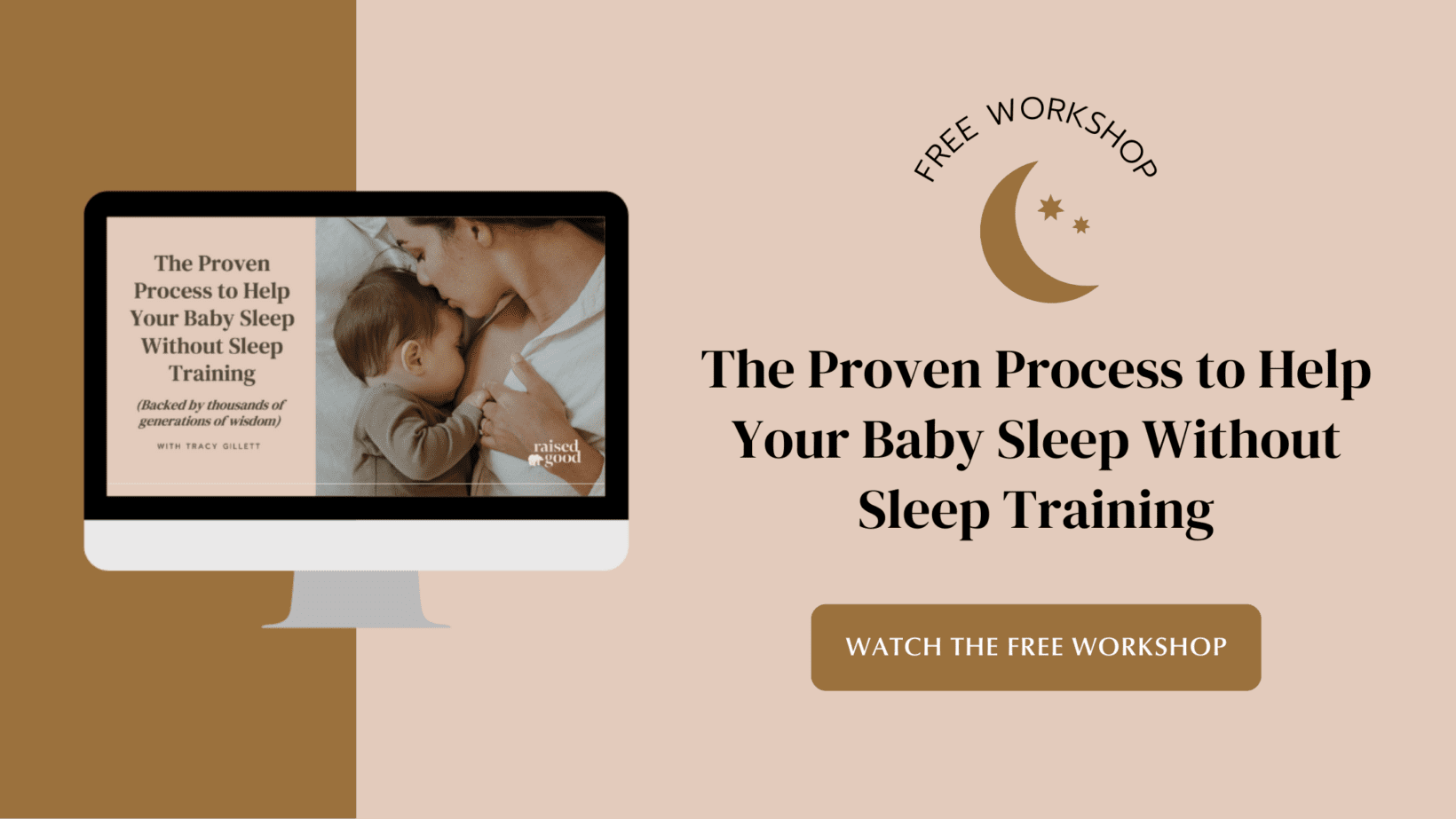
Flaw One: Bed sharing mothers and infants were excluded.
279 mother-infant pairs were recruited but only 230 pairs were reported in the study. This discrepancy is partly because mothers and babies who were bedsharing were excluded.
Why were bedsharing pairs excluded? No plausible reason is given in the Pediatrics article, but it may be because studies by Professor James McKenna at the Mother-Baby Sleep Laboratory at the University of Notre Dame, and others, have repeatedly shown that bedsharing mothers get more overall nighttime sleep than solitary sleeping mothers and that bedsharing infants tend to fall back to sleep faster (Mosko et al 1997).
But, this study is about the amount of sleep babies get, not mothers, right?! That brings us to the second and fundamental flaw of the study.
Flaw Two: Infant sleep was parent-reported.
Research has shown that when compared to actigraphy, a non-invasive method of monitoring sleep/wake cycles, there is a vast difference between what parents observe about their babies sleep and what actually happens. Essentially, actigraphy is objective and parent-reporting is subjective.
A Canadian infant sleep study used both actigraphy and parent reported wakings to monitor infant sleep. The differences between the two methods were astonishing.
The study looked at parent’s perceptions of whether their baby had a sleep “problem”. Over a six week period, the parent-infant pairs were split into two groups – an intervention group who were supported to practice controlled crying and a control group.
Sleep diary information from parents supports the effectiveness of controlled crying, with parents reporting fewer night wakings and “better” sleep for their babies.
While parents reported their infants woke on average three times per night, actigraphy showed their babies were actually waking eight times per night.
Over the course of the six weeks, there was essentially no change in the babies sleep patterns in either group. Actigraphy showed that the babies were waking 8.2 times per night at baseline compared to 7.9 times per night at 6 weeks.
This is reaffirming news for bedsharing parents as solitary sleeping parents often claim that their babies are sleeping through the night. It simply isn’t true. Parents may be sleeping for longer periods, but their babies are not. Rather, they are silent through the night and they’ve learned not to wake their parents up.
A little sleep training and a pair of earplugs cannot undo millennia of evolutionary blueprinting.
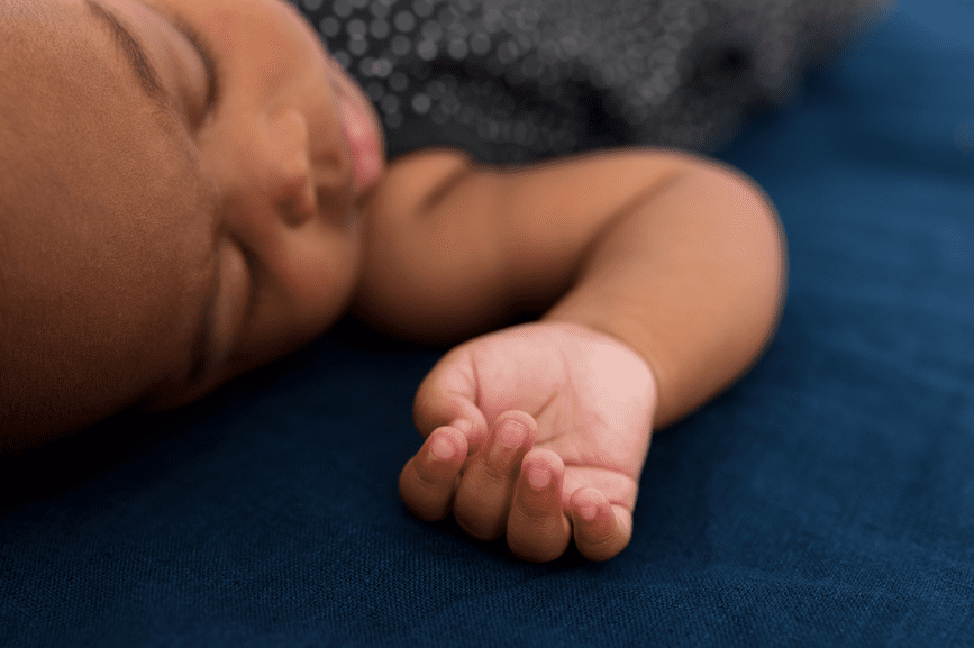
Flaw Three: Babies in the study were sleep trained.
Parents were encouraged to follow non-responsive techniques to train their babies NOT to communicate their night time needs. These methods included no feeding to sleep, encouraging “self-soothing” as a means to fall asleep both initially and through the night, moving babies to their own rooms by three months of age and avoiding night time feeds by 4 months of age.
It is important to recognize that non-responsive sleep training is not about helping babies sleep longer, better or more peacefully. It is about conditioning babies to be silent through the night which is at odds with what babies are biologically programmed to do. Babies who were silent in this study didn’t wake their parents because they’d been trained to remain quiet.
This approach would be similar to studying the stereotypical behaviours that elephants develop in order to survive the confines of a zoo, labelling these behaviours as “normal” and then being confused as to why wild elephants behave differently in the wilds of Africa.
When we mess with nature and place artificial limits on our babies’ ability to express their needs, we break their spirits and we lose their trust.
We may get a little more sleep, but is it worth it? Don’t our children deserve more consideration and compassion than that?
How can we help parents sleep through the night?
If this is really about helping parents to sleep through the night, how do we do that while also meeting the needs of our babies?
The answer is simple…follow nature’s plan as closely as possible, by either breastsleeping or cosleeping safely.
Professor James McKenna reports that bedsharing mothers often underestimate the number of times they wake to nurse their babies by as much as 50%. When bedsharing and solitary sleeping mothers were asked about their quality of sleep, 84% of bedsharing mothers said they’d experienced “good” or “enough” sleep whereas only 64% of solitary sleeping mothers said they’d had “good” or “enough” sleep.
This is also supported by research by Kathleen Kendall-Tackett who reports that in a study involving 6,410 mothers of infants aged 0-12 months, women who exclusively breastfeed reported significantly more hours of sleep, better physical health, more energy and lower rates of depression than those mothers who formula fed. While breastfeeding mothers woke more frequently throughout the night to nurse their babies, mothers fell back to sleep faster and also only woke lightly rather than fully as they were more likely to be bedsharing.
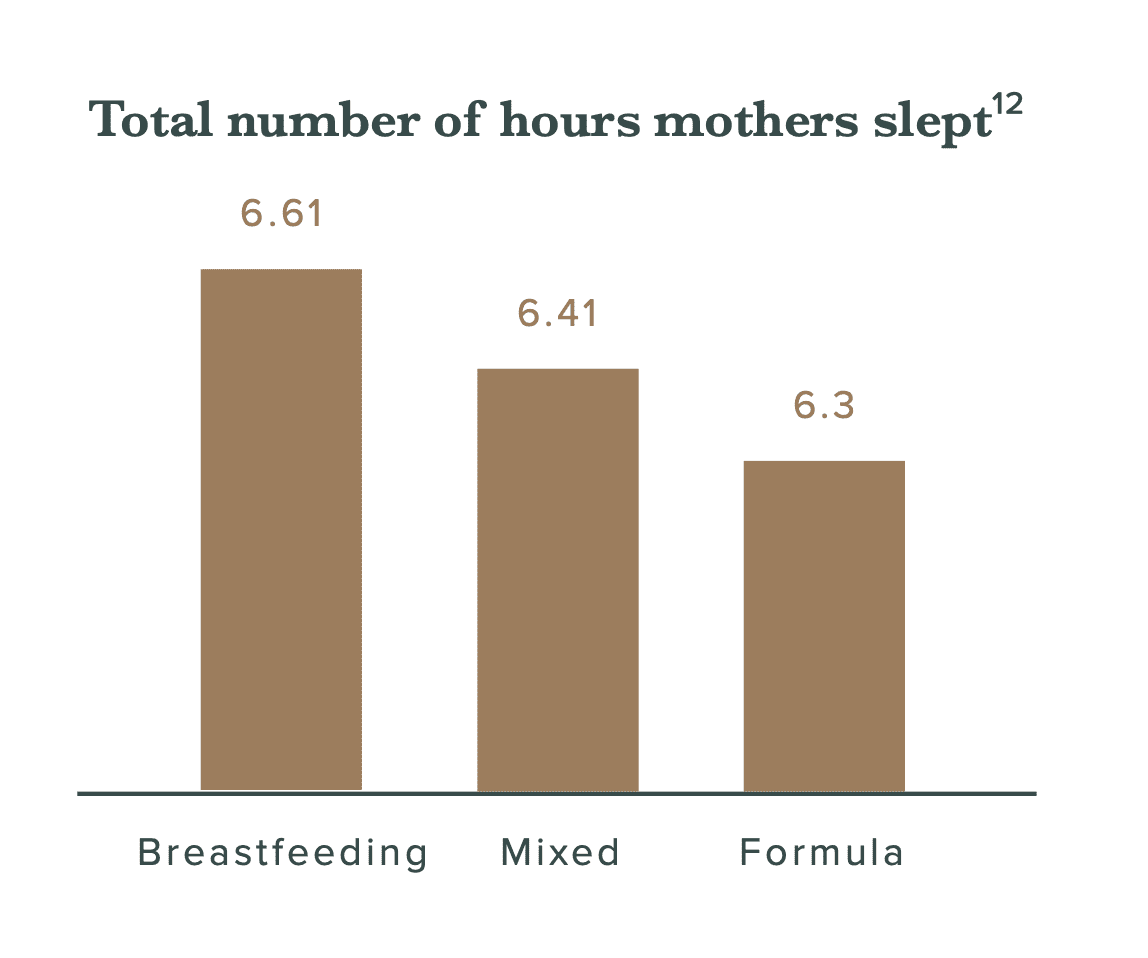
In an interview with Pinky McKay IBCLC, Kendall-Tackett expanded on these results explaining that exclusive breastfeeding is almost universally associated with bedsharing (breastsleeping). Mothers who breastsleep find it much easier to fall back to sleep after waking owing to a myriad of biological and hormonal reasons and therefore feel less tired in spite of more broken sleep.
Another study showed that, “Parents of infants who were breastfed in the evening and/or at night slept an average of 40-45 minutes more than parents of infants given formula. Parents of infants given formula at night also self-reported more sleep disturbance than parents of infants who were exclusively breastfed at night.” (Doan et al. 2007)
To learn more about the science of infant sleep including, breastfeeding, night waking, safety and SIDS, and bedsharing check out my Good Science Sleep Guides.
What is the real problem with modern infant sleep practices?
When it comes to nighttime parenting, we know how babies are designed to sleep safely. We know the best way to nourish their growing minds and young bodies. And we know that honoring ancient wisdom and following our instincts can contribute to greater maternal happiness.
Knowledge isn’t the problem. The problem is acceptance.
Western society categorically resists accepting the fact that babies don’t fit into adult timetables, that they need to be held, that they crave sleeping next to us and that it’s normal for babies wake often, nurse and seek the reassurance of their protectors in the wee small hours of the morning.
The disconnect between biological needs and cultural norms places impossible expectations on parents, fuelling mommy wars and shrouding senseless guilt on new mothers.
But, what if we take a step back, recalibrate our perspective and accept the realities of babyhood?
Perhaps we’d realize that there isn’t a problem with infant sleep and that the real issue is unrealistic adult expectations. What if instead of resistance we chose acceptance? What if we authentically supported mothers, so that they can give their babies what they need?
The authors of this study actually set out to assess the relationship between sleep in infancy and childhood obesity.
Perhaps if these researchers chose acceptance and started from the biologically normal baseline of breastsleeping, they’d have dedicated their resources to exploring ways in which we could increase breastfeeding rates. After all, we know that there is a dose-response effect between breastfeeding duration and the risk of childhood obesity.
Or maybe the authors may have researched ways in which to promote safe cosleeping environments. After all, we know that non responsive sleep training methods associated with solitary sleep results in elevated cortisol levels, which in turn are associated with an increased obesity risk.
Or perhaps the authors may have looked at the global correlation between the lack of support for new mothers, in the form of maternity leave and its inverse relationship to breastfeeding rates and childhood obesity.
But, the reality is, this study, like many others, isn’t about science. It’s about politics. And there has never been a better time to call bullshit on misguided politics disguised as science.
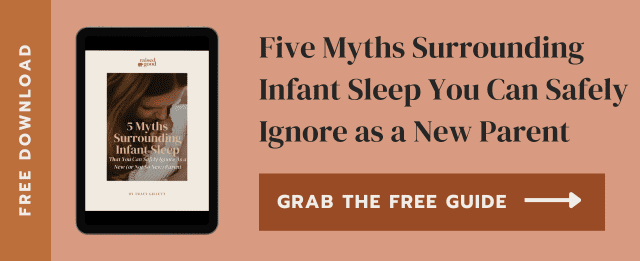
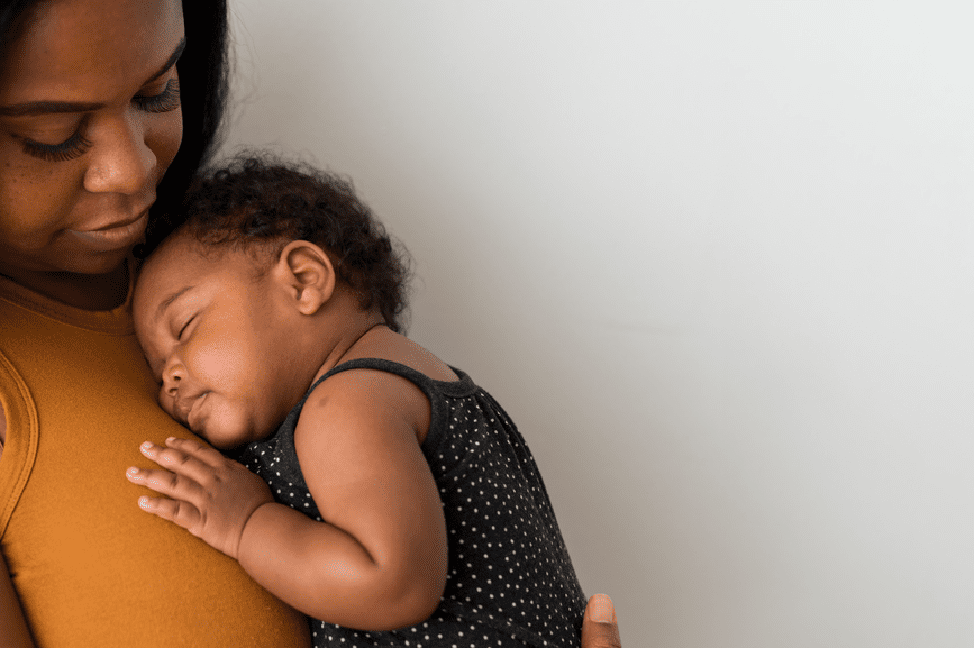
Loved this
An old lady myself but this was how I raised my second son. Cant understand why so many people are against co sleeping
Nature designed breastfeeding to help mums to get a good nights sleep as breastfed babies are easy to soothe at night when you co sleep